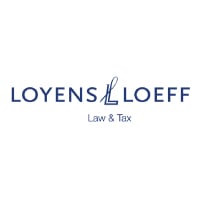

Head of Legal | Cube Infrastructure Managers




Maxime Chehirlian
Head of Legal | Cube Infrastructure Managers
What are the projects that you are most proud of working on over the past 12 months?
I take particular pride in having contributed to the successful closing of the largest co-investment project undertaken by our company. This achievement required extensive legal and financial structuring to accommodate both existing and new investors. The cross-functional collaboration between the legal and investment teams was exceptionally effective and instrumental in delivering a co-investment vehicle that is already exceeding performance expectations.
Equally important, though perhaps less high-profile, has been the integration of improved processes involving both front and back-office teams. These enhancements have fostered more seamless cooperation and ensured the consistent maintenance of key documentation — such as organisational charts and legal records — across all departments. The implementation of streamlined, effective processes that enhance efficiency without imposing unnecessary administrative burdens is essential to reducing the risk of error and continuously improving the overall quality of service delivery.
Based on your experiences in the past year, are there any trends in the legal or business world that you are keeping an eye on that you think other in-house lawyers should be mindful of?
With regard to emerging trends, it is no secret that artificial intelligence (AI) tools are assuming an increasingly prominent role within the legal profession. Although we are still in the early stages of this technological evolution, even basic AI tools have already contributed significantly to operational efficiency. The next phase will involve the effective integration of AI into existing systems — such as automated document classification — and other platforms, including organisational and workflow management software.
While various solutions are already available on the market, we are approaching a point where their integration will become markedly more efficient, resulting in substantial improvements in both the quality and speed of legal service delivery. However, a word of caution is warranted: AI must not be allowed to foster complacency. Every legal reference, source, and document produced through or with the assistance of AI must be thoroughly reviewed and verified. This culture of diligence and accountability must be upheld not only by Heads of Legal but also instilled throughout their teams.
What do you think are the most important attributes for a modern in-house counsel to possess?
In my view, the most critical attribute, without contest, is adaptability. Drawing a comparison with my previous experience as a legal practitioner, the expectation was to possess deep expertise in a specific area of law. In contrast, the current professional environment necessitates a comprehensive and functional knowledge of all relevant legal domains. It further requires the ability to identify legal issues competently and to analyse, interpret, and critically evaluate the legal opinions and advice rendered by external or internal counsel.
This necessity extends beyond the confines of traditional legal knowledge. A sound understanding of ancillary disciplines — such as accounting, financial structuring, taxation, and cross-jurisdictional corporate structuring — is imperative, as these areas significantly influence the day-to-day operations of the business.
Adaptability is essential not only in legal matters, but also equally in interpersonal relations. As Head of Legal, one must engage with various internal departments, fostering effective collaboration to ensure operational efficiency. Additionally, interactions with external service providers require the ability to obtain optimal performance while maintaining professional and sustainable relationships. Ultimately, this adaptability extends to the clients’ requests themselves — in my case, the investors — who must be guided with precision and clarity when pursuing projects involving our investment vehicles or when seeking explanations concerning legal documentation.
A high degree of adaptability enables a Head of Legal to remain effective and pertinent across a wide array of subjects, thereby ensuring optimal efficiency and strategic value to the organisation.